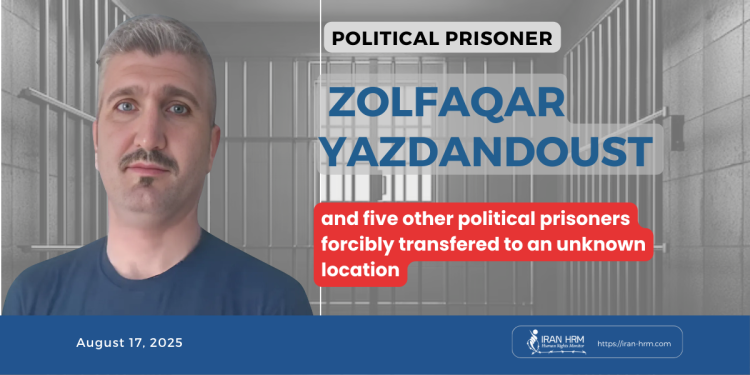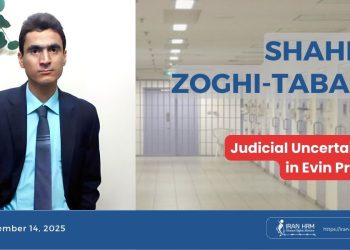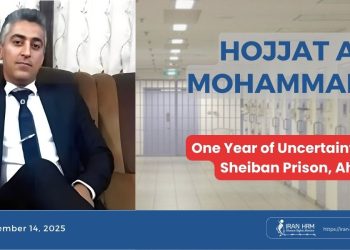Informed sources report that on June 9, Zolfaghar Yazdandoust, along with five other political prisoners, was transferred to an unknown location following their protest against the inhumane conditions in Gonbad-e Kavus Prison. The families of these prisoners have had no information about the whereabouts or condition of their loved ones in recent days, and judicial authorities as well as prison officials have so far failed to provide any clear response.
Protest Against Inhumane Conditions
The six prisoners, all members of the “No to Execution Tuesdays” campaign, had previously been exiled from Shahrud Prison to Gonbad-e Kavus Prison. They repeatedly protested the dire conditions there, including the poor quality and shortage of food, overcrowding that forced many inmates to sleep on the floor, infestations of bedbugs, and the lack of proper hygiene.
Reports indicate that following recent clashes, the prison population has dramatically increased, to the extent that even the prison’s Hosseiniyeh (prayer hall) has been converted into a detention area. Overcrowding has left many prisoners without sufficient space to sleep, forcing them to lie on the ground. In addition, food rations have not only decreased but are of such poor quality that inmates remain hungry even after consuming their full portions.
History of Pressure on Protesters
This group of political prisoners had previously been punished and sent to solitary confinement for protesting similar conditions. Shortly after their return to the general ward, they were once again subjected to pressure and violent treatment by prison guards and subsequently transferred to an undisclosed location.
The Case of Zolfaqar Yazdandoust
Zolfaqar Yazdandoust, born in 1981 in Azadshahr, Golestan Province, is married and has one child. He was arrested in June 2024 and transferred to Gonbad-e Kavus Prison after interrogation. The judiciary sentenced him to one year in prison and 74 lashes on charges of “disturbing public order and peace.”
This inhumane punishment has been carried out twice so far: first in December 2024 and again on April 23, 2025, under the order of Judge Jalalitabar, despite Yazdandoust’s poor physical condition. His protests against this cruel punishment were ignored, and instead, he was fined 2 billion rials (approximately 200 million tomans). Unable to pay this exorbitant amount, his prison term was extended.
Families’ Concern and Authorities’ Silence
Families of the six political prisoners report that they have repeatedly approached judicial and prison authorities over the past several days, but have been met only with silence. They express deep concern about the fate of their loved ones, warning that this total lack of information may indicate increased pressure on the prisoners or even preparations for the sudden enforcement of harsher sentences.







